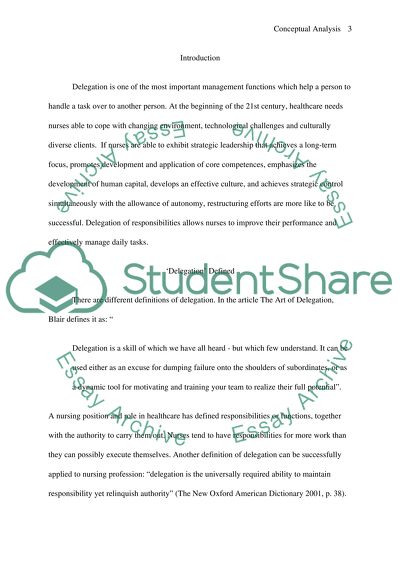Cite this document
(Conceptual Analysis of Delegation Essay Example | Topics and Well Written Essays - 1750 words, n.d.)
Conceptual Analysis of Delegation Essay Example | Topics and Well Written Essays - 1750 words. https://studentshare.org/health-sciences-medicine/1510411-delegation
Conceptual Analysis of Delegation Essay Example | Topics and Well Written Essays - 1750 words. https://studentshare.org/health-sciences-medicine/1510411-delegation
(Conceptual Analysis of Delegation Essay Example | Topics and Well Written Essays - 1750 Words)
Conceptual Analysis of Delegation Essay Example | Topics and Well Written Essays - 1750 Words. https://studentshare.org/health-sciences-medicine/1510411-delegation.
Conceptual Analysis of Delegation Essay Example | Topics and Well Written Essays - 1750 Words. https://studentshare.org/health-sciences-medicine/1510411-delegation.
“Conceptual Analysis of Delegation Essay Example | Topics and Well Written Essays - 1750 Words”. https://studentshare.org/health-sciences-medicine/1510411-delegation.


